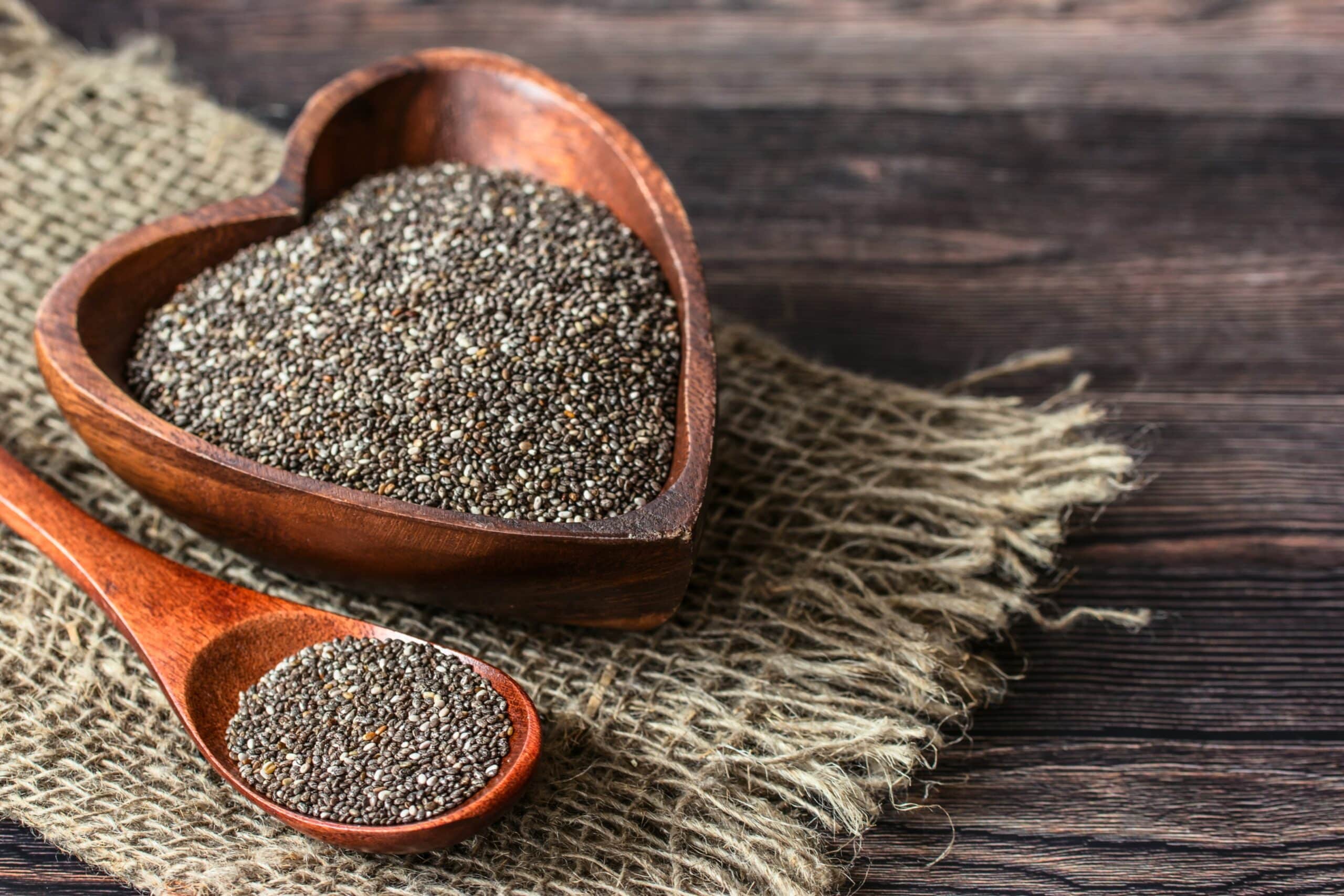These versatile and nutritious tiny seeds are commonly ground, stirred, or sprinkled into smoothies, yogurt, pudding, salads, and oatmeal making them great for those on the go. The gel produced from the ground seeds can even be used as an egg substitute in pancakes and bake goodies.
One of the big pluses to chia seed is that although they are rich in nutrients they are very low in calories. Just two tablespoons contain 18% of the daily recommended value of calcium, 137 calories, 30% of the RDV for manganese and magnesium, as well as 27% of the RDV for phosphorus. They are also rich sources of zinc, potassium, and vitamin B, for all of these reasons, it makes them an extremely efficient source of nutrients.
To go along with the nutrient profile, chia seeds are a good source of fibre-containing 11 grams in that same 2 tablespoons. As most people don’t reach the DRV of 30 grams, adding chia seeds to your diet is a good option to help reduce the risk of heart disease, type 2 diabetes, colorectal cancer, and regulate blood sugar levels.
Those looking to up intake of anti-ageing antioxidants that can help to prevent or delay certain types of cell damage may want to consider chia seeds as well as they are a rich source of antioxidants due to the presence of chlorogenic acid, caffeic acid, myricetin, quercetin, and kaempferol which are believed to help protect the heart and liver as well as having anti-ageing and anti-carcinogenic characteristics.
Those looking to add more plant-based protein to their diet may find chia seeds to be a good option as they are approximately 14% protein, and they are a complete protein containing all of the essential amino acids that are required for human nutrition including isoleucine, leucine, lysine, methionine, phenylalanine, threonine, tryptophan, histidine, and valine which help build proteins, grow muscle, and transport nutrients.
Another plus is that gram for gram chia seeds contain more omega-3 fatty acids than salmon does which has various anti-inflammatory properties and may also help to support better brain and heart health as well as improve stress response.
The rich calcium, magnesium and protein content will also help to support healthy bones which again is good news for those looking to increase intake of more plant-based options as 25 grams of chia seeds contains 157 grams of calcium which is more than the content of 100 ml of dairy milk.
Studies suggest that regular consumption of chia seeds could significantly reduce blood pressure for those with hypertension, and the rich omega-3 content can work as a blood thinner reducing overall blood pressure. The reductions can support overall heart health and may help to reduce the risk of cardiovascular disease and all-cause mortality. It is worth noting that those taking medications should consult with their physician as very large quantities of chia seeds could potentially interact with certain blood pressure or blood sugar medications.
The body digests chia seeds slowly which will provide slow-release energy and help to keep blood sugar levels stable throughout the day, while the fibre content can slow the absorption of sugar into the blood and decrease overall blood sugar levels.
Additionally, the high concentration of soluble fibre makes chia seeds expand in the stomach which can help to keep you feeling fuller for longer and reduce snacking which can help to support healthy weight loss as part of a healthy diet when combined with exercise.




